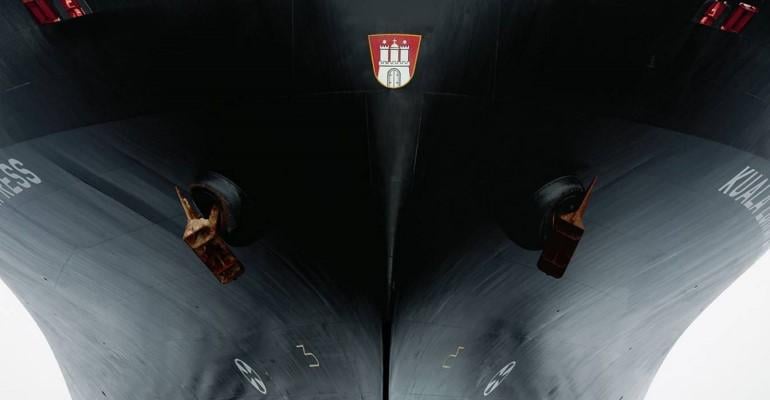First quarter revenues of of $4.6bn were down from $6.0bn in Q1 2023, with group profits of $325m compared to $2.0bn in Q1 2023. The drop in earnings follows an industry-wide trend in recent quarter due to the normalisation of the container market after the disruption of the COVID pandemic, and first quarter 2024 performance was better than expected.
The group reported higher transport volumes of 3.0m teu, up 6.8% from 2.8m teu in the same period last year. Average freight rates were down by $640 per teu to $1,359 per teu.
“The rates stabilised in the first quarter due to the rerouting of ships around the Cape of Good Hope and higher demand for capacity. The numerous new ships that have and will be delivered across the industry in 2024 have been instrumental to keep supply chains going without too much disruption,” said said Rolf Habben Jansen, CEO of Hapag-Lloyd AG.
Transport expenses in the group’s shipping segment rose to $3.3bn from $3.0bn in the year-ago period, with active cost management limiting the impact of higher expenses from the rerouting of ships via the longer Cape of Good Hope route to avoid the Red Sea.
Hapag-Lloyd’s terminal & infrastructure segment booked revenues of $107m, up from $6m in Q1 2023 and EBIT dropped by $1m on-year to $18m, although the figures are limited in their scope for comparison as the new segment was only introduced in the second half of 2023.
With a strong start to the year, the board’s EBITDA forecast for 2024 was revised upwards to $2.2bn to $3.3bn from $1,1bn to $3.3bn; EBIT was revised to $0 to $1.1bn from -$1.1bn to $1.1bn. 2024 earnings are still expected to be front-loaded in the year, although geopolitical uncertainty brings a high degree of uncertainty to the outlook.
“Going forward, we must keep a close eye on our costs, and we will continue the implementation of our Strategy 2030 – with main focus on our decarbonisation initiatives and our promise to be the undisputed number one for quality for our customers,” said Jansen.
Copyright © 2024. All rights reserved. Seatrade, a trading name of Informa Markets (UK) Limited.
Add Seatrade Maritime News to your Google News feed.  |
